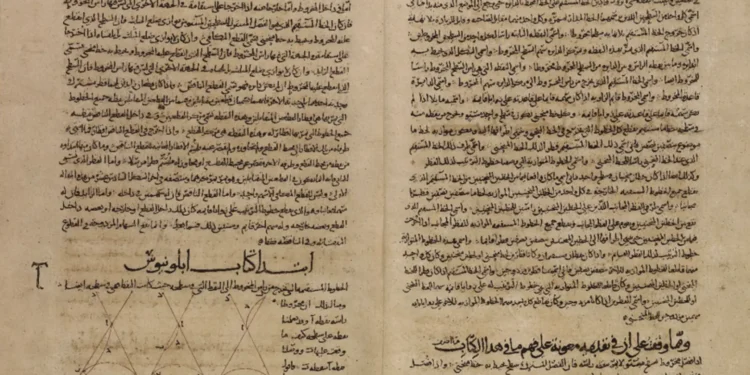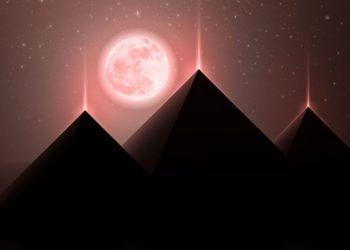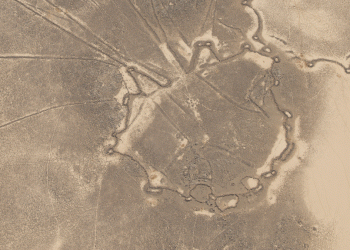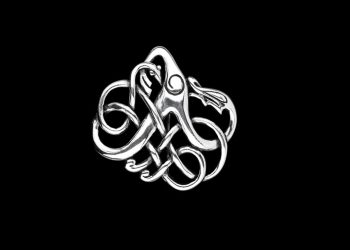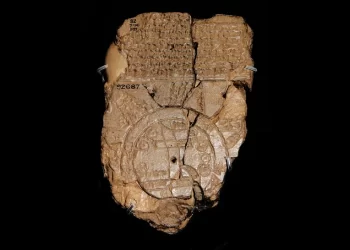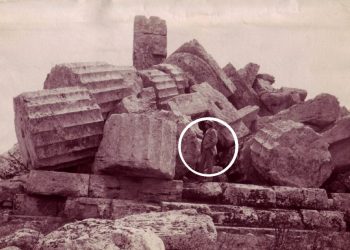Two missing books from one of the most influential works in ancient mathematics have been rediscovered, not in Greece, but in a centuries-old Arabic manuscript housed at Leiden University Libraries in the Netherlands. The texts, written by the renowned Greek mathematician Apollonius of Perga, had long been thought lost—until now.
Apollonius, often called the “Great Geometer,” made groundbreaking contributions to the study of conic sections, a field that became the foundation of modern geometry, astronomy, and physics. His most famous work, Conics, introduced key mathematical concepts such as the hyperbola, ellipse, and parabola—shapes that today describe planetary orbits, optical lenses, and even satellite trajectories.
Historians knew that Conics originally consisted of eight books, but for centuries, only the first four were available to European scholars. The fate of the remaining volumes remained a mystery. Now, books five and seven have been identified in an Arabic manuscript dating back to the 17th century, part of a collection acquired by Dutch orientalist and mathematician Jacob Golius.
The rediscovery was revealed in a recent publication from Leiden University Press, highlighting the significance of Arabic translations in preserving and transmitting ancient Greek knowledge.
The Role of Islamic Scholars in Preserving Greek Mathematics
During the Islamic Golden Age (8th–14th century), scholars in the Middle East meticulously translated and expanded upon Greek mathematical texts. Without their efforts, many of these works—including Apollonius’ Conics—would likely have been lost forever.
The newly identified manuscript is a remarkable example of this tradition. Written in elegant Arabic calligraphy and accompanied by precise geometric diagrams, it reflects the deep respect medieval scholars had for mathematical knowledge. Dutch historian of science Jan Pieter Hogendijk, who examined the manuscript, described it as “a stunning artifact of scientific heritage, both in its content and craftsmanship.”
Unexplored Manuscripts Hold More Secrets
Leiden University Libraries hold one of the richest collections of Arabic, Persian, and Ottoman scientific manuscripts in the Western world. Yet, like many similar collections in institutions such as the British Library and the Bibliothèque Nationale de France, much of it remains unexplored.
Experts believe that many more mathematical and scientific works could be hidden in these archives, waiting to be identified. However, the limited number of scholars fluent in Arabic, Persian, and Ottoman Turkish has slowed research efforts.
“Western libraries contain thousands of Arabic manuscripts with rare mathematical treatises,” says Prof. Mostafa Zahri, an expert in mathematical modeling at the University of Sharjah. “Digitization and collaboration between Western and Middle Eastern scholars are key to unlocking their full value.”
A Window Into the Mathematical World of the Past
The rediscovery of Apollonius’ missing books has sparked renewed interest in historical mathematical texts. At a recent workshop held at the University of Sharjah, researchers demonstrated how medieval Islamic mathematicians used a system called abjad—a numerical notation where Arabic letters represent numbers—to perform complex calculations.
In fact, many of the mathematical conventions we use today, from algebra to trigonometry, have deep roots in Islamic scholarship. The survival of Apollonius’ works within an Arabic manuscript is yet another reminder of how knowledge has flowed across cultures throughout history.
Personally, the rediscovery of these missing books raises an intriguing question: What other lost scientific works are still hidden in archives around the world?
From solving complex geometric problems centuries before their European counterparts to mapping cities with astonishing accuracy, medieval Islamic scholars preserved and advanced ancient knowledge in ways that are only now being fully appreciated.



